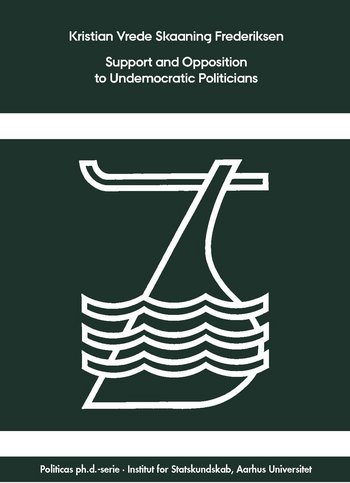Kristian Vrede Skaaning Frederiksen
Support and Opposition to Undemocratic Politicians

The world has seen the rise and fall of several undemocratic presidents, prime ministers, and governments during recent decades. Such Support and Opposition to Undemocratic Politicians is key to understanding democratic sustainability in the 21st century: While historical democratic breakdowns often resulted from violent events such as military coups, contemporary democratic erosion is mostly driven by elected leaders' subversion of democracy. But why do voters support and oppose undemocratic politicians? I address this research question in the dissertation. First, I show – using experimental evidence from five countries – that neither partisanship, policy preferences, nor competent politicians make citizens tolerate undemocratic behavior entirely. However, undemocratic politicians may still gain support by promising policies in line with citizens' preferences, by representing citizens' preferred parties, or by appearing competent. Turning to contextual factors, I show – using an innovative experiment in England – that party systems matter little for support of undemocratic politicians, while democratic experience – judging from panel data from 43 countries – enables it. Finally, I show – using an experimental intervention in 10 countries – that telling people that democracy is vulnerable and at risk of breaking down matters only to a very limited extent for opposition to undemocratic politicians. In sum, I demonstrate that Support and Opposition to Undemocratic Politicians appears to be as much on a knife-edge balance in a scientific setup as it is in the real world. The dissertation brings cautiously optimistic news for democracy but highlights the need to develop further interventions against support for undemocratic politicians.
![]() Ophavsretten tilhører Politica. Materialet må ikke bruges eller distribueres i kommercielt øjemed.
Ophavsretten tilhører Politica. Materialet må ikke bruges eller distribueres i kommercielt øjemed.